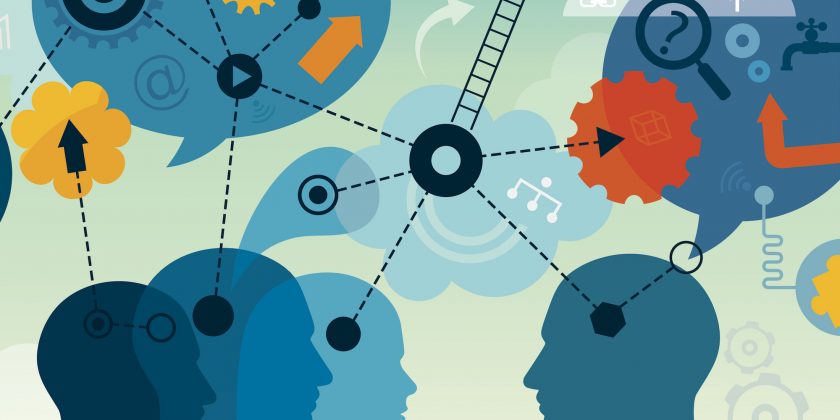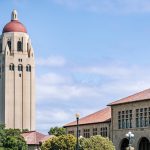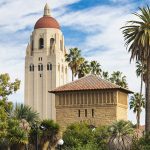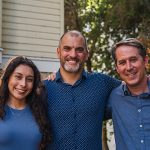Vasco Yasenov, an economist and IPL postdoctoral fellow, talks with executive director Duncan Lawrence about his childhood in post-communist Bulgaria, his work at the center of a particularly heated debate about refugees and labor markets, and what economics gets right and wrong about immigration.
Listen to the full conversation or read through the highlights below.
Duncan Lawrence: Vasco, welcome to Origin Stories.
Vasco Yasenov: It’s a pleasure to be here.
DL: I want to start by asking you to speculate: What percentage of Americans do you think could find Bulgaria on a map?
VY: Five percent? One in twenty? It would be more fair to ask people to identify the region, since Bulgaria is such a small, unfamiliar country.
It’s in eastern Europe, squeezed between Greece to the south and Romania to the north. To the east is the Black Sea, and to the west there’s Serbia and North Macedonia. We share a short border with Turkey in the southeast, as well.
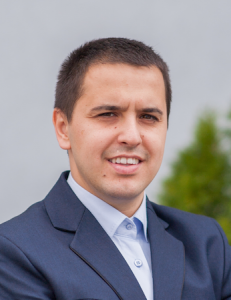 DL: Can you give us the thirty-second history of Bulgaria, as you learned it when you were growing up there?
DL: Can you give us the thirty-second history of Bulgaria, as you learned it when you were growing up there?
VY: I was born in Bulgaria in the late 1980s, when we were still a communist country. So it’s interesting that you asked about the version of history we were taught in school. The government was communist for a few decades, and during that time the regime changed or manipulated the history textbooks. And those narratives persisted even after the communist era.
So the quick summary goes like this: The country was established in 681, and it’s the oldest country in Europe that has kept its name ever since its founding. After a couple centuries, the Byzantine empire took over, and then we had the Second Bulgarian Empire. In the late 14th century the Ottoman Empire took over, and it reigned until the late 19thcentury, when we got the modern nation state of Bulgaria we have now.
DL: To stay with some modern history, what was your childhood like in Bulgaria? And you have a twin brother—what was that like?
VY: Well, I don’t know what it’s like not to have a twin, so I don’t have a good reference point. My twin brother and I moved to the Bay Area together, and he still lives here. When you have a twin, you always have company, so you’re never lonely. Because of that, I hate being by myself. Even at home, I like to be surrounded by people.
DL: Yet you chose a profession that traditionally is very solitary. Did that play into your thought process at all when you were deciding to pursue a PhD?
VY: Well, that’s why the Immigration Policy Lab has been such a great fit for me, because all our projects are very collaborative, and it’s a vibrant team environment. But I didn’t really know what I was getting into when I started graduate school.
DL: At what point in your life did you begin thinking about becoming an international migrant?
VY: The path opened when my aunt won the diversity visa lottery in 1999 and moved to the United States. So for a few years after that, I knew that this could be a channel for me to migrate here. When I was 18, in 2006, I left Bulgaria for the first time to visit the United States with my brother. I loved it, so when I got back I started planning and strategizing to become an international student here.
DL: The green card lottery has attracted enormous attention in recent years. What’s your personal perspective on this policy, since it has had a cascade effect across your family and changed the course of your lives? And how do you think about it from an economist’s perspective?
VY: I have benefited enormously from this policy, through my aunt. So I do think people in other countries should have the same opportunities I have had because of this program.
As an economist, I look at the Bay Area, an incredibly diverse place with people from all over the world, and it’s thriving economically. Immigrants play a big role in that success, and a program that ensures diversity among immigrants is important. There are studies showing the economic benefits of ethnic diversity in the United States, too. So it’s disheartening to see this policy under attack.
DL: A lot of your research focuses on the economic impact of immigration, in particular the way immigrants affect the wages of native-born workers. Can you give us the “Cliff’s Notes” version of the debate and describe your approach to it?
VY: On the one side, economists look at our most simple models of supply and demand, and these offer a clear prediction that when you have more immigrants, wages will be lower. It’s a powerful narrative, because it’s so simple that plenty of people can understand it. You draw two lines on a graph, you move one of them, and then you get this result. So very early on, the expectation was that immigrants have a strong negative effect on the wages and employment rates of native workers.
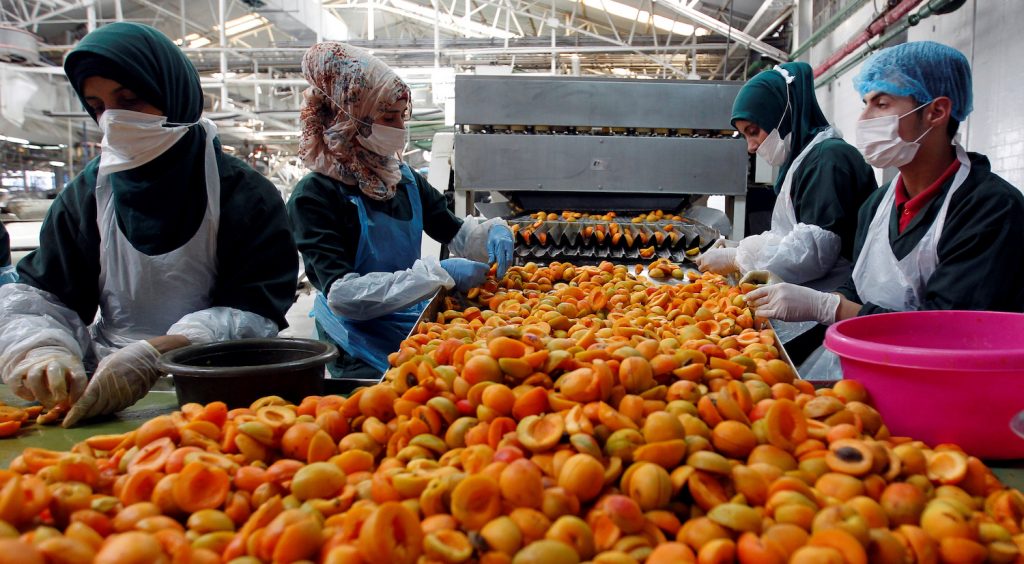
A few decades later, economists started to test this theoretical prediction, and they found that the data don’t confirm it. In reality, labor markets are more complicated. There are a lot of things that change as immigrants come in. Immigration allows native workers to change occupations or upgrade their education, for example. Immigrants are often concentrated in different sectors and tasks, so they’re not all in direct competition with native workers.
So the literature has shown that immigration has a small overall effect on wages and employment. A small portion of the workforce can experience competition and negative effects, but the magnitude is much smaller than what we’d expect if we didn’t have any data to analyze this question.
DL: You’ve found yourself in the middle of a high-profile debate with an economist from Harvard, on a topic that has been very prominent in most immigrant-receiving nations. So you entered the spotlight at an early stage in your career, when you were in grad school, and I’m curious what that experience was like.
We always want to do science properly and follow the results wherever they lead. But at the same time, we operate within academic fields that have their own dominant personalities and opinions. Do you have any advice for other people in PhD programs who may have findings that don’t align with those of prominent people in their field, which may invite debate?
VY: In the second year of my PhD program, I started working on a project evaluating the labor market effects of immigration. As I was preparing my dissertation prospectus two years later, a paper came out from that Harvard economist you mentioned, which had done an analysis very similar to mine and reached different results—namely, that at one point in U.S. history, refugees really hurt native workers, with an effect of tremendous magnitude.
So I found myself in this academic debate about this moment in history, and overall it has been rewarding. As a young grad student, I didn’t have anything to lose. I hadn’t built a reputation yet. There was a lot of media attention, and a lot of discussion on Twitter among the academic community. I lost sleep a couple nights, but I just tried to enjoy the ride, and it was a fun one. Very few graduate students get to go through something like that.
DL: One of the great things about being an academic is that we can choose what to work on and learn about. What’s something you didn’t know much about two years ago but now find fascinating? Have you found yourself immersed in a particular question or topic that wasn’t even on your radar before?
VY: I’ve learned so much during my time at IPL. In economics, when we talk about immigration we’re usually only talking about one thing: how immigrants affect the wages and employment rates of native-born workers. At IPL, I’ve learned to broaden this view, and it has profoundly affected my career.
Here, we look at the economic well-being of immigrants themselves. We explored the question of whether they relocate in pursuit of health benefits, which is atypical for an economist. We looked at low-income immigrants’ access to citizenship. That’s an area I’ve found very rewarding, and again an economist normally wouldn’t consider that kind of question. So I’ve learned to look at immigration from many new angles.
DL: I’d like to get your perspective on the community college system. What was it like attending and then transitioning out of community college?
VY: I went to De Anza College in Cupertino for three years, and I had a great experience. I started there right after moving to the United States, and it was the first time I ever lived in a big, international community. De Anza had about 2,000 international students, from all over the world. Bulgaria didn’t have many foreigners, and especially not in the small town where I grew up.
In addition to the rigorous academic standards and high-quality teaching, one reason I’m a big advocate of community college is the low fees. Coming from abroad, I would have had to pay $30–40,000 a year to attend a school in the University of California system, and that’s just for tuition. If it weren’t for the community colleges, I probably would not have come to the United States at all. So I’m incredibly grateful to policymakers and educators who have built the community college system.
When I transferred to UC San Diego, I felt very well prepared academically, so it was a smooth transition.
DL: I’m curious about your perspective on the U.S. political system, since you grew up in a different one. Does anything about the differences jump out at you?
VY: One thing that stands out to me is the inflexibility of the two-party system here. People feel forced to choose either Democrat or Republican, and if they don’t like either, they don’t have viable options. In Bulgaria, we have a lot of parties that come and go, and there’s more open competition.
DL: Given what you know now, what’s one big change you’d like to make to immigration policy in Bulgaria, if you had a magic wand to make it happen?
VY: I think the problems related to immigration in Bulgaria are not so much in policy as in sentiment among the population. Changing that is more difficult. I would love to see the country take in more refugees, for example, but the problem there is with people’s attitudes. I’m not sure what the research literature says about what policies can do that.
DL: It basically says that attitudes are really hard to change.
VY: I want to be positive—I’d hope that if you change attitudes, policy change will follow.
DL: I appreciate that sentiment. Vasco, it’s been a pleasure talking with you. Thanks for taking the time to be part of Origin Stories.
VY: Thanks for having me. I really appreciate the opportunity to share my story.

